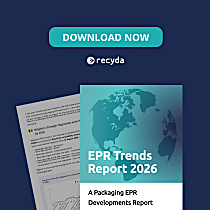Reports urge greater transparency and stronger regulation in food labeling across Europe

The European Court of Auditors (ECA) and Safe Food Advocacy Europe (SAFE) have released reports underscoring the need for more transparent food labeling to help consumers make informed choices.
SAFE’s study, conducted by market research firms Ethica and Toluna, surveyed 5,000 people from Germany, France, Italy, Poland and Spain. It revealed consumer distrust in food labels, with 67% of respondents feeling that companies fail to provide adequate information.
Francisco de Araujo Vasquez, project and policy officer at SAFE, tells Packaging Insights: “To rebuild trust and enhance transparency in their labelling practices, food companies should simplify label information, using a clear, consumer-friendly language and avoiding overly technical terms, acronyms or small fonts that confuse consumers.”

“Moreover, ingredients should be disclosed in a transparent manner. In particular, ingredients that are potentially dangerous for our health, including additives, preservatives and artificial ingredients, should be highlighted.“
Consumers demand transparency
The survey showed strong public support for regulation, with nearly nine-tenths of Europeans believing institutions should mandate more transparent labeling.
The report delves specifically into using terms like “natural” on products, often without substantiating evidence. More than five-sixths of the consumers oppose the use of the term “natural” for products containing synthetic ingredients, while 83% of respondents want explicit labeling for products with synthetic components.
 The survey covers a broad spectrum of dietary and consumer habits.The definition of “natural” on food labels can be tricky, according to Xabier Collados, communication coordinator at SAFE. “We want to rather focus on advancing legislation that will define the term ‘synthetic,’ requiring all products containing synthetic ingredients to clearly state it on labeling.”
The survey covers a broad spectrum of dietary and consumer habits.The definition of “natural” on food labels can be tricky, according to Xabier Collados, communication coordinator at SAFE. “We want to rather focus on advancing legislation that will define the term ‘synthetic,’ requiring all products containing synthetic ingredients to clearly state it on labeling.”
Vasquez adds that environmental claims like “carbon neutral” should also be backed by clear and verifiable data to prevent misleading greenwashing and reinforce trust in labeling practices.
Calls for stronger framework
The ECA report reveals the legislative gaps in the EU’s framework, recommending that the European Commission analyse labeling practices, align them with consumer expectations and strengthen oversight on voluntary labels.
“To address the existing gaps in food labeling, the EU should guarantee a legal framework that protects consumers from misleading claims and helps the achievement of the Farm to Fork and Green Deal objectives,” highlights Vasquez.
He suggests that the EU should ensure proper labelling of ingredients helping consumers access products that are GMO-free, free of synthetic substances and biodegradable, along with specifying any processes affecting a product’s naturalness, including percentages of each type in mixed products.
Under the 2011 Food Information to Consumers Regulation, food packaging information is required to be “accurate, clear, easy to understand and not misleading.” The report notes that the delays in updating the legal framework limit consumers’ ability to make informed choices.
“Stricter regulatory oversight is essential, with more rigorous inspections and penalties to ensure labels accurately reflect the product. Consumer education campaigns should be carried out to help people make informed choices,” he concludes.











